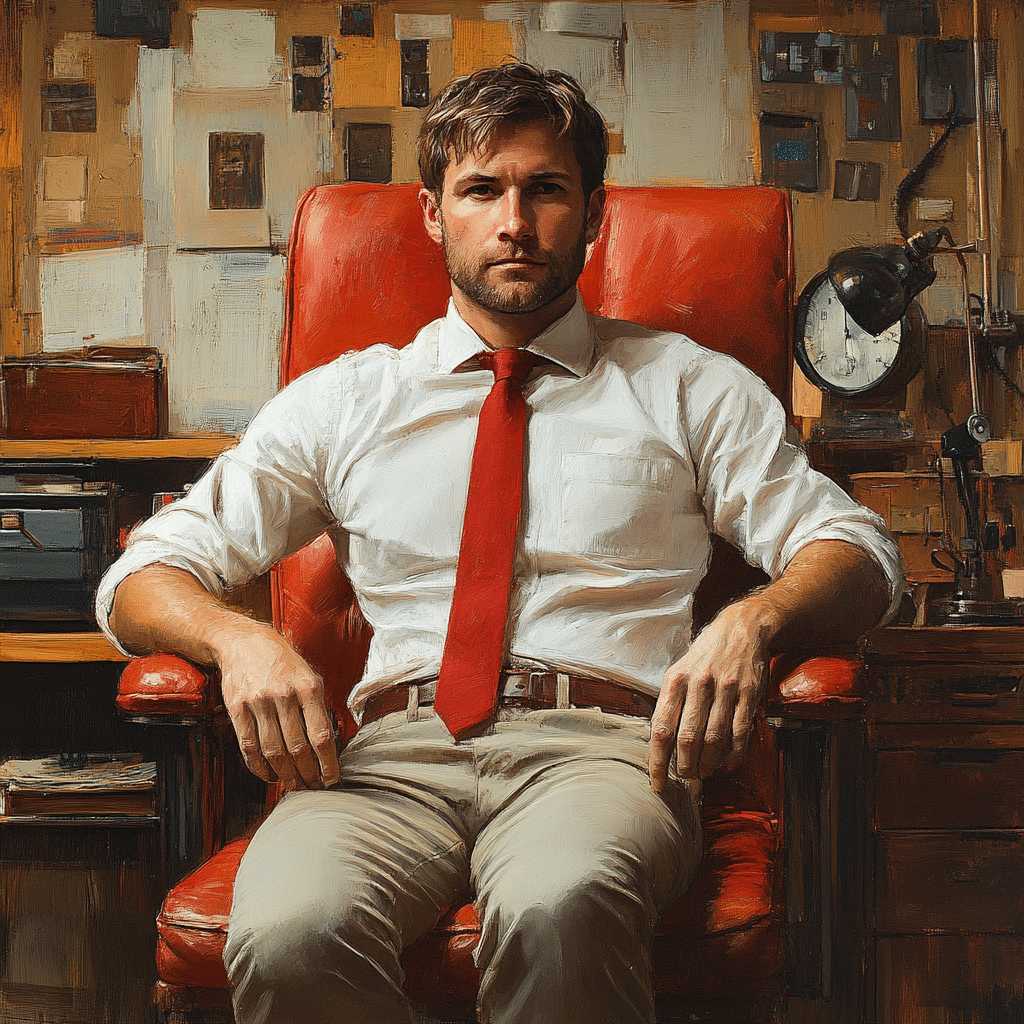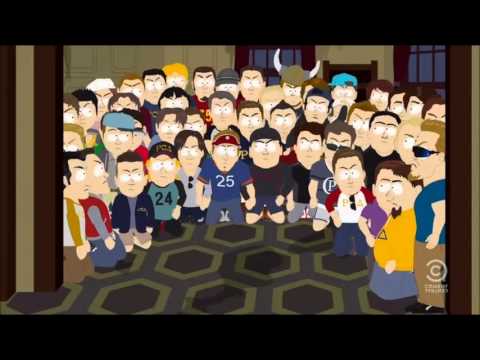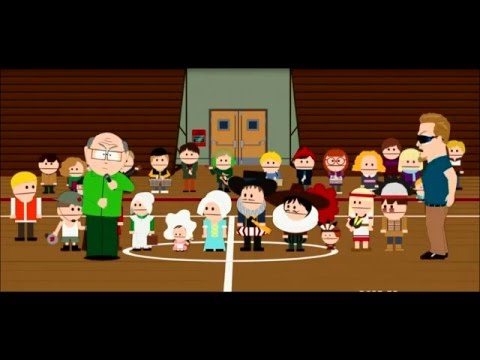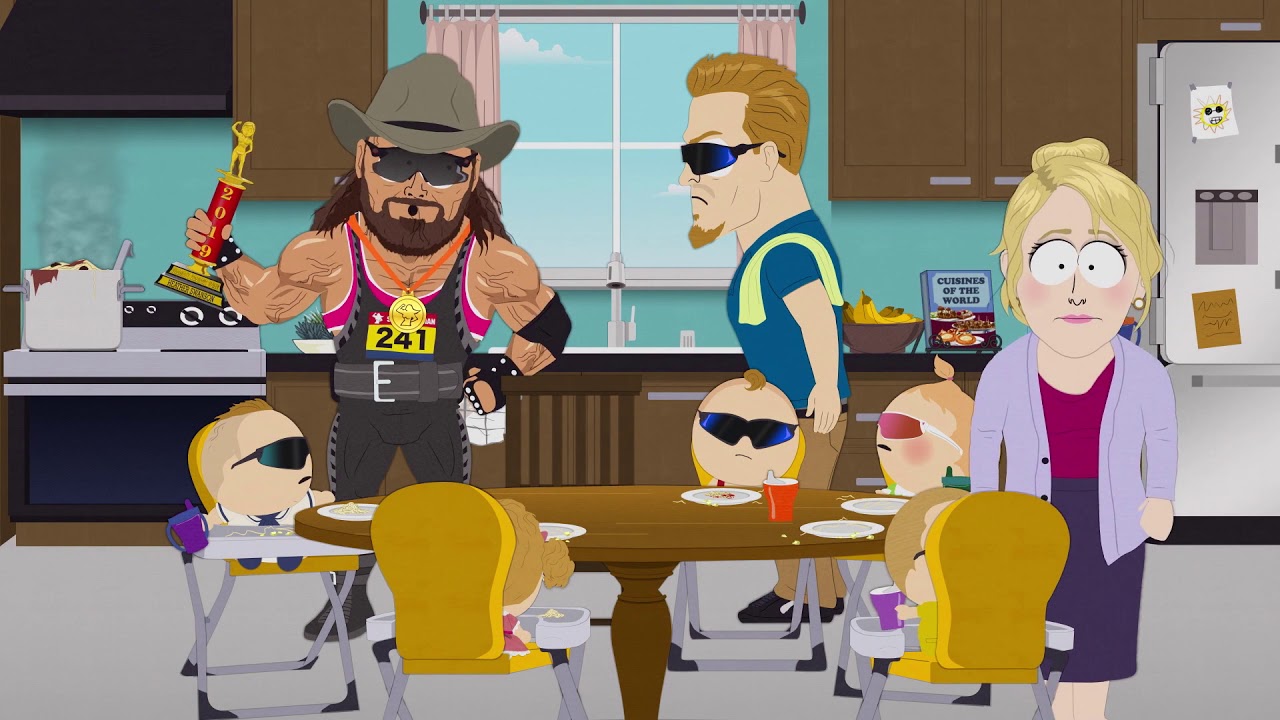
Pc Principal: The Controversial Advocate For Social Justice
In the landscape of animated satire, few characters have stirred as much debate as PC Principal from the long-running series South Park. Representing both the advocacy for social justice and the pitfalls of extreme activism, PC Principal serves as a mirror reflecting contemporary discourse around social issues. With the onset of 2024, his actions lead us to reconsider the impact of political correctness on our society, showing how these animated portrayals resonate with real-life events and movements.
As political correctness continues to dominate conversations about social norms, PC Principal’s insistence on maintaining progressive standards often plunges him into the thick of controversy. His tenure begins with the firing of Principal Victoria, following the unfortunate incident where a student used the term “Hot Cosby” in reference to rape. This incident catalyzes PC Principal’s arrival at South Park Elementary to foster a more inclusive environment. However, we must explore whether his hyper-focus on language encourages healthy discourse or stifles freedom of expression.
PC Principal’s outlandish campaigns and heated reactions often incite laughter, but beneath that humor lies a deeper narrative about the necessity (or excess) of cancel culture. Characters like PC Principal demand our attention, especially as we navigate a society increasingly polarized by differing views on social justice. How does this playful yet pointed critique affect our understanding of advocacy, and what does it suggest about our collective journey toward social equity?
The Top 5 Bold Moves of PC Principal in Challenging Social Norms
PC Principal’s championing of safe spaces mirrors real-world movements within institutions like Brown University and Evergreen State College. His push for these zones raises pressing questions: Are these environments essential for fostering healthy dialogue, or do they constrict free speech? The debate rages on, with many advocating for a balanced approach where both emotional safety and open conversation can thrive. Brands and institutions are increasingly called to implement similar policies, eliciting both support and dissent.
A notable aspect of PC Principal’s activism lies in his stance against cultural appropriation. His fervent objections challenge viewers to reflect on real-world events, such as the backlash faced by brands like Urban Outfitters for culturally insensitive clothing lines. Festivals like Coachella have also come under fire for the same reasons, inviting discussions about the fine line between cultural appreciation and appropriation. This dialogue highlights the importance of understanding the implications of creative expression in a diverse society.
Through comedic moments, PC Principal effectively navigates the seriousness of privilege and allyship. His character employs satire to promote discussions that might otherwise remain untouched. This mirrors the broader trend in media, where programs like The Daily Show use humor to shine a spotlight on various social issues. By intertwining laughter with critical societal critiques, PC Principal shows us that comedy can be a powerful tool for social advocacy.
PC Principal’s efforts to address gender identity issues parallel the work of real-life advocates like Laverne Cox. His character emphasizes the importance of representation and nuanced dialogue around gender discussions, reflecting societal struggles that demand attention. This authentic portrayal of activism encourages viewers to consider the complexities surrounding gender and foster understanding.
Perhaps one of PC Principal’s most impactful portrayals is his take on cancel culture. His exaggerated actions serve as a meta-commentary on this phenomenon, encouraging audiences to question both efficacy and morality in the pursuit of social justice. Drawing parallels to events surrounding celebrities like J.K. Rowling, who faced severe backlash for her comments on gender identity, the irony in PC Principal’s narrative invites us to scrutinize our own involvement in cancel culture.

Ms. London: A Counterpoint to PC Principal’s Advocacy
As PC Principal’s character unfolds, Ms. London emerges as a contrasting figure who introduces a more nuanced perspective on political correctness. While PC Principal champions radical social advocacy, Ms. London advocates for understanding through dialogue instead of strict adherence to ideological tenets. This dynamic highlights the tension within social justice spaces, where polarizing topics often create barriers to empathetic conversation.
By presenting Ms. London as an alternative, South Park opens the floor for critical thinking about activism. Is radicalism essential, or can a gentle approach encourage more significant change? The juxtaposition of these two characters forces us to reconcile differing views within the activism community. In doing so, audiences learn that forging connections is often just as crucial as advocacy itself.
The friction between PC Principal and Ms. London paints a vivid picture of the challenges activists face in advancing social justice. It reinforces the idea that a singular approach may not be the answer; rather, fostering diverse perspectives can create more fruitful dialogues. In many ways, these interactions reflect the landscape outside the show, where movement leaders constantly negotiate differences in ideology to unify around common goals.
| **Aspect** | **Details** |
|---|---|
| Character Name | PC Principal (real name undisclosed) |
| Origin | Introduced in the *South Park* episode titled “PC Principal Final Justice” (Season 19) |
| Role | Principal at South Park Elementary School |
| Primary Focus | Advocates for political correctness and social justice |
| Character Traits | Outspoken, aggressive in promoting social justice, often seen as overly sensitive |
| Signature Issues | Opposes the use of derogatory terms (e.g., “retarded”), promotes inclusivity |
| Conflict | Clashes with students over perceived insensitivity and inappropriate language |
| Noteworthy Incident | Gets involved after a controversial incident involving the term “Hot Cosby” |
| Portrayal | Satirical representation of social justice advocates and political correctness movements |
| Public Perception | Sometimes viewed as an exaggerated stereotype of “PC culture” |
| Influence on Plot | Drives storylines that tackle issues of censorship, social awareness, and activism |
| Catchphrase | Often repeats phrases that champion social sensitivity and correctness |
| Cultural Impact | Sparked discussions about political correctness in modern society and media |
The Cultural Impact of PC Principal in the Age of Social Media
Beyond the screen, PC Principal’s character influences social media discourse about activism and social justice. In an age where platforms often amplify voices but also create division, the challenges he faces mirror real-life dilemmas experienced by advocates today. Movements like #MeToo and Black Lives Matter demonstrate the double-edged nature of advocacy—uniting communities while equally inciting passions that can lead to division.
As discussions become more polarized, PC Principal encapsulates the struggle many experience in the digital sphere. He represents the modern activist grappling with the complexities of online engagement. Viewed through this lens, his character becomes not just a figure of satire but a nuanced representation of the activism landscape, prompting audiences to evaluate their roles in these ongoing dialogues.
In this social media-driven world, the stakes are considerably higher. Cancel culture, social justice movements, and public opinion are all interconnected, creating a potent mix that can bolster or hinder causes. As PC Principal’s story unfolds, it emphasizes the importance of understanding our digital footprints and how our actions impact advocacy efforts.

The Future of Political Correctness in Media
As we venture into 2024, critical questions arise: What lies ahead for political correctness in media? Prominent characters like PC Principal may face evolving scrutiny as audiences demand authentic representations of social issues. The dialogues inspired by his character could push creators to craft narratives that not only entertain but also responsibly engage with the nuances of social justice advocacy.
The demand for more varied portrayals of social issues illustrates a collective yearning for honesty and authenticity. It’s clear that a one-dimensional approach, exemplified by PC Principal’s rigidity, may no longer suffice. Audiences crave well-rounded storytelling that captures the essence of activism without oversimplifying complex themes.
PC Principal’s animated portrayal of political correctness encourages viewers to reflect on the effectiveness and potential pitfalls of activism in its various forms. As our cultural landscape continues to evolve, it’s crucial to engage with these discussions, evaluating not just the words spoken, but how they shape our understanding of justice, representation, and respect in society. As creators rise to the occasion, let’s hope PC Principal becomes a catalyst for more thoughtful storytelling that champions both progress and understanding.
PC Principal: The Controversial Advocate for Social Justice
Inside the World of PC Principal
You might be surprised to learn that PC Principal, introduced in South Park Season 19, has sparked a lot of debate about social justice in pop culture. Initially intended as a comedic take on political correctness, his character has evolved into a symbol of the tension between activism and satire. Speaking of tension, did you hear about the latest buzz surrounding P Diddy? If you want the scoop, dive into the news here. It’s a fascinating reminder of how celebrity culture often intersects with societal issues.
A Satirical Spin on Real Issues
PC Principal doesn’t just throw shade; he shines a light on various social matters, sometimes with a heavy dose of irony. Whether it’s gender identity or cultural appropriation, his antics often parallel the debates we see in real life. Interestingly enough, other forms of media are tackling such complex topics too. For instance, if you’re into anime, you might check out the show Mask Danshi wa Koishitakunai no ni, which offers a unique angle on romance and identity. Explore more about it here.
The Broader Impact of a (Not-So) PC Character
What’s truly gripping about PC Principal is how he reflects society’s struggles. Issues around safe spaces and trigger warnings have become hot topics lately. And speaking of hot topics, Keke Palmer’s new family dynamic has also grabbed headlines—are you curious about her baby daddy? Discover the latest on that here. Even as one character embarks on a ride through political correctness, real-world implications keep swirling around him—sometimes more outrageous than fiction.
Balancing Humor with Seriousness
In the end, PC Principal embodies a striking balance between humor and serious conversation, resonating with audiences who appreciate comedy’s role in addressing sensitive topics. And if you’re wondering how the comedy landscape has been shifting, let’s not forget the impact of celebrities like Ashton Kutcher in advocating for social issues through film and media. Explore his contributions here. These intersections of entertainment and advocacy highlight how comedy can act as a mirror, reflecting both societal norms and the push for change.

What does PC mean in principal?
PC in principal stands for “politically correct,” which reflects a focus on using language and actions that avoid offending or marginalizing people.
Why is PC Principal called that?
PC Principal got his name because he’s overly dedicated to political correctness, pushing social justice issues and holding the school accountable for offensive language or behavior.
Why was Principal Victoria fired?
Principal Victoria was fired because after a student made a crude joke about rape, the school felt it needed a more progressive leader to handle such sensitive issues.
What is PC Principal making fun of?
PC Principal is often seen as making fun of the extreme lengths some people go to promote political correctness, highlighting the tension between activism and everyday language.
What does PC mean?
PC means “politically correct,” a term that describes language or policies intended to avoid offense, especially regarding marginalized groups.
What does PC stand for in school?
In school, PC stands for “politically correct,” emphasizing the importance of inclusive language and social awareness in a learning environment.
Is PC Principal good or bad?
Whether PC Principal is good or bad is up for debate; some find him helpful in promoting awareness, while others see him as overly controlling and censoring.
Does PC Principal stay?
PC Principal does stay on in South Park, becoming a recurring character known for his strict enforcement of political correctness.
What year was PC Principal introduced?
PC Principal was introduced in the show’s 19th season, which aired in 2015, marking a shift in the tone of the series.
Why did PC Principal beat up Cartman?
PC Principal beat up Cartman because he believed Cartman’s bullying and insensitive humor went against the principles of compassion and understanding that he champions.
Who was removed from South Park?
Officer Barbrady was removed to refresh the show’s dynamic, as his character seemed less relevant in a changing social landscape and storyline.
Why did South Park get rid of Officer Barbrady?
South Park stopped using paper as part of a comedic shift towards digital media, keeping up with modern trends and reflecting changes in the real world.
When did South Park stop using paper?
PC Principal was added to the show to address issues of political correctness, humorously exploring the balance between free speech and social sensitivity.
Why did South Park add PC Principal?
PC Principal tells Kyle to “shut up” during a heated moment where he feels Kyle’s comments challenge his authority and ideals on social issues.












